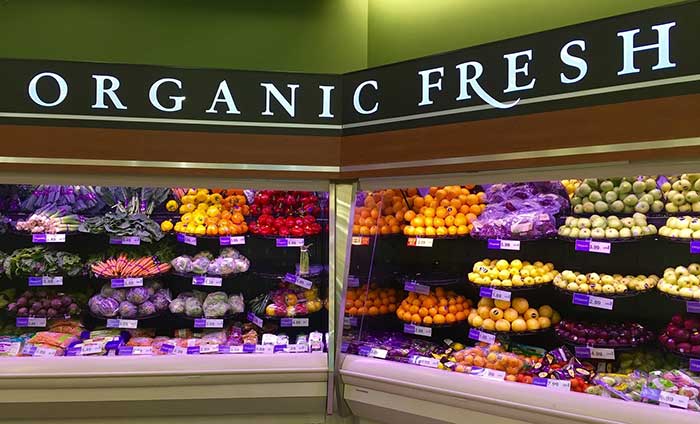In the last decade, organic food has steadily made its way into consumers shopping carts, as a priority to many. Even locally sourced organic food is increasingly sought out despite its higher price point – making it clear that consumers are willing to pay for healthier labelled products.
While produce is the main focus for consumers’ organic purchasing, meats and dairy are also a concern for consumers; people want to be sure that their food does not contain the harmful pesticides or hormones that is often talked about in the food industry.
But can consumers be totally sure that their food is organic and local as promised? It is not uncommon for companies to commit fraud in their organic labelling practices, but it is important to note that those whose labels are explicit about their sourcing and handling behavior will gain the trust and support of their consumers.
Words matter
Key words pique the interest of consumers – like ‘no artificial growth hormones’, ‘pesticide free’, ‘organic’, ‘non-GMO’, ‘humane’ and ‘fair trade’ – because consumers, particularly millennials, increasingly place the environmental, safety and social concerns above the price of a product.
Free E-Book
Regulations, Speed-to-Market and Innovation: How to stay compliant and competetive in an ever-changing market place.
From fair wage to protecting the environment, 80 percent of consumers said that they would be willing to pay nearly double for organic, sustainably produced products.

Is it really ‘local’?
“Buy local” has become a bit of a marketing tagline in the food space as consumers express increased interest in knowing more about their food, where it came from and how it was grown. That creates an opening for producers who want to try out new marketing techniques, but it also creates conception challenges for consumers.
According to a U.S. Department of Agriculture report, U.S. shoppers purchased an estimated $50.1 billion of organic food – but many of these products, sold as local, were actually produced internationally.
This certainly does not vibe well with consumers who are under the impression that their food marked locally sourced is actually local. If producers wish to gain the favor of their consumers, they must be more truthful, and that starts and ends with transparent labelling.
Balance through labels
The food and beverage manufacturing industry has had to adjust to serve clients and customers who seek organic, non-GMO, high quality, nutrient rich foods with transparent and traceable labelling systems.
For producers as well as consumers, quality comes at a price. In order for manufacturers to deliver the highest quality raw ingredients while competing in global markets, they need innovative solutions that will allow them to develop exciting new products with exceptional quality.
To achieve this quality, balance is crucial – and difficult to achieve without the proper tools. The key for producers lies within their data – finding a way to accurately analyze, integrate and provide cross-functional support for the most complex aspects of recipe-based production development.
An innovative PLM platform supports rapid response and optimizes product development along the supply chain while monitoring quality controls, regulatory compliance and specific recipe data. These may include the Halal, Kosher, organic, allergens, and nutritional information that consumers are looking for.
Trust as a means to success
Nothing is more important than trust – trust provides brand loyalty across product lines and around the globe. Clean labels as a single source of truth can propel your business – dirty labels can sink you.
Industry leaders and successful organizations – manufacturers that thrive in all market conditions – understand the value of brand loyalty, and the necessity of providing customers with trusted product information, particularly as the information relates to locally sourced and organic ingredients and products.
Those using a PLM system like SpecPage’s PDM would certainly have better chances at achieving trust with their customers, because they would be able to maintain transparent labelling through PDM’s structured calculation and reporting functionalities. This may be a company’s first step in getting the success they desire.


